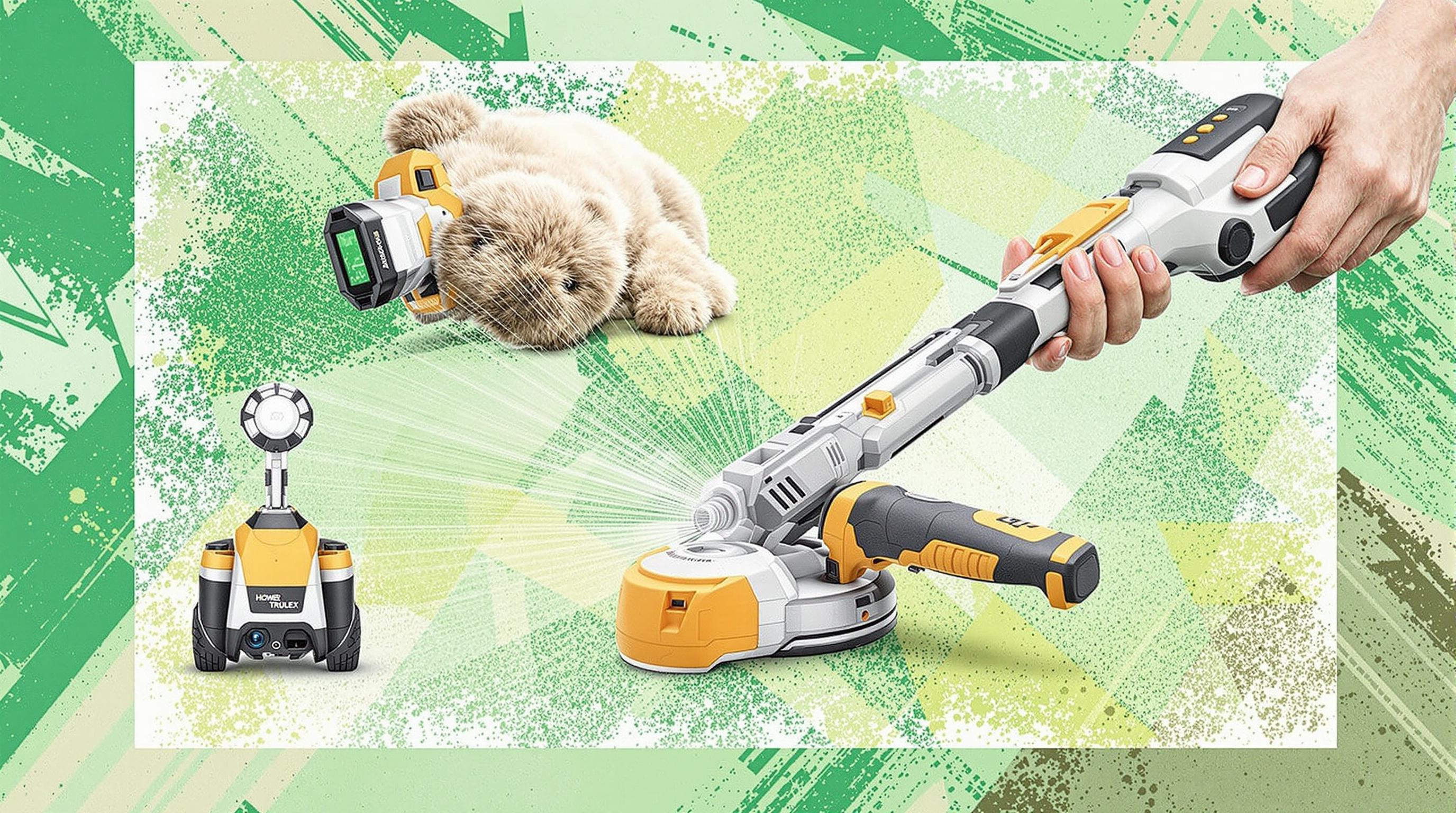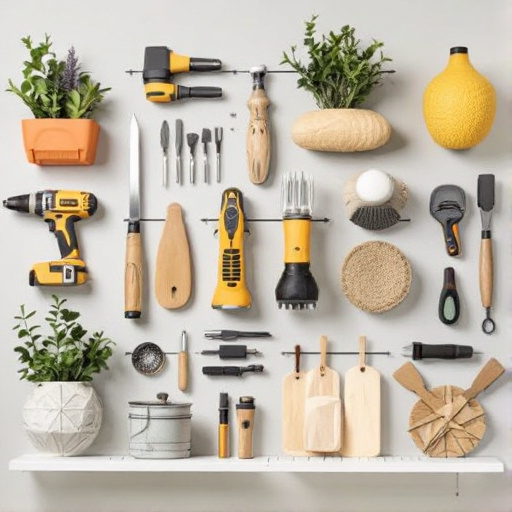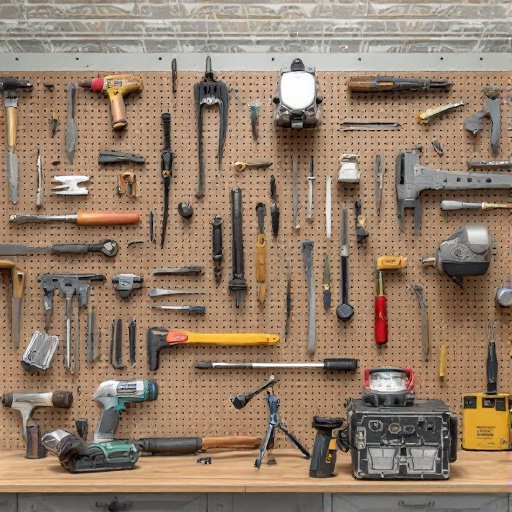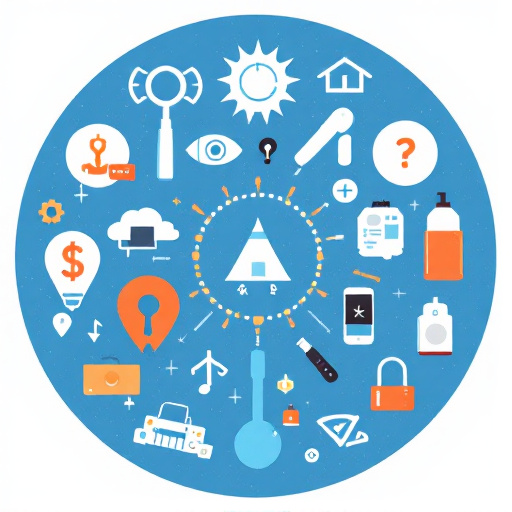Featured Articles
- The DIY Uprising: How Home Tool Customization is Shaping Personal Identity and Community Connections
- The Power of DIY: How Vintage Tools Are Making a Comeback in Modern Home Renovations
- The Rise of Eco-friendly Home Tools: Sustainable Solutions for Modern DIYers
- The Rise of Eco-Friendly Tools: Unconventional Gadgets for Sustainable Home Renovation
- The Rise of Smart Hand Tools: Are They Revolutionizing DIY or Just a Trendy Gimmick?
Unlocking the Secrets of Smart Home Tools: Are They Making Us Lazy or Just Genius?
Unlocking the Secrets of Smart Home Tools: Are They Making Us Lazy or Just Genius?
Smart home tools are revolutionizing the way we interact with our living spaces, promising convenience and safety at the push of a button. But do these digital helpers risk transforming us into couch potatoes, or are they simply clever innovations enhancing our daily lives?
Introduction: A Technological Revolution
In the annals of home improvement, the 21st century stands out for the incredible innovations that have emerged. With the rise of smart home technologies, individuals are seeking to make their lives easier, more efficient, and more controlled. Yet, this convenience raises a crucial question: Are we losing initiative and becoming lazy, or are we exercising genius in our daily routines?
The Smart Home Boom: What Are We Talking About?
In layman’s terms, smart home technology encompasses devices that connect to the internet, allowing you to monitor, control, and manage your home remotely. According to Statista, the market for smart home devices was estimated to reach $174 billion by 2025, underscoring the rapid adoption of this technology (Statista, 2021). From smart thermostats that adjust the temperature based on your habits to voice-controlled assistants that respond to your every command, there’s no denying the breadth of options available.
Are We Becoming Lazy?
One of the strongest arguments against the use of smart home tools is the perception that these gadgets are breeding laziness. Imagine a world where you don’t even need to get up to switch off the lights; instead, you simply tell your voice assistant to do it. Some skeptics argue that this over-reliance on technology can erode our physical activity levels. According to a CDC report, only about 23% of American adults get the recommended amount of exercise, and the growing trend of smart devices being integrated into homes could exacerbate this issue (CDC, 2020).
Becoming Smart: Efficiency Over Laziness
On the flip side, many proponents argue that smart home technology enhances efficiency rather than promoting laziness. For instance, smart thermostats, like the Nest, can save homeowners up to 15% on heating and cooling costs by learning your schedule and adjusting the temperature proactively. These advancements might even inspire people to spend more time outdoors, as they’re able to manage their home’s environments remotely.
Case Study: The Jones Family
Consider the Jones family, who recently transitioned to a smart home. Initially skeptical about the potential for laziness, they were surprised to find that integrating smart tools led to a more active lifestyle. With motion sensors and smart lighting, they have set routines that encourage movement around their home rather than remaining static. Surprisingly, the Jones children have taken on more responsibilities, setting their smart appliances for laundry and meal prep, which has made them more engaged and independent.
Changing Tides: From Finger-Tapping to Exercise
Research indicates that technology can contribute to lifestyle changes in ways that promote health. For instance, fitness trackers, often viewed as an extension of smart home technology, encourage users to reach daily step goals. The more connected our homes become, the more opportunities there are to integrate health-focused routines into our lives. After all, who needs to go to the gym when your smart mirrors can guide you through energizing workouts right in your living room?
The Social Component of Smart Homes
Innovation in smart homes also fosters social interaction and community. Smart speakers can host game nights, provide recipes for friends, or stream playlists during gatherings. A National Association of Home Builders study found that about 85% of people believe connectivity enhances their social interactions (NAHB, 2021). In short, smart home devices may paradoxically drive people closer together, even as they make everyday tasks easier.
Humor: The Smart Home Fails
Of course, with the advent of technology comes its fair share of comic relief. Just think about the stories circulating about smart assistants misunderstanding commands. One user complained that their device confused “Play music” with “Play my mortgage,” resulting in an unexpected and humorous conversation about their financial struggles. While such failings might not promote productivity, they certainly add a layer of light-heartedness to the otherwise serious world of smart technology.
Environmental Impact: Genius at Work?
There’s an often-overlooked facet of smart home tools: their environmental impact. Smart home technologies can significantly reduce energy consumption, leading to both cost savings and lower carbon footprints. A study from the Environmental Protection Agency noted that the average household wastes over $30 a month on energy bills due to inefficient practices (EPA, 2019). By employing smart technologies, homeowners are not just saving money – they're contributing to a more sustainable future.
Balancing Convenience and Action
So how do we strike a balance between enjoying the conveniences of smart home technology while avoiding the perils of inertia? Maybe it boils down to self-regulation. By setting boundaries, like limiting screen time on devices or ensuring we use the stairs instead of an elevator, we can wield smart technology wisely. We have the power to enhance our lives with smart tools while making conscious choices that promote underlying health and activity.
A Call to Action
This discussion is far from exhaustive, but it opens the door to considering the broader implications of smart home technology. We invite readers to explore this world thoughtfully, discerning when convenience enhances life or supersedes the need for movement and engagement. As technology continues to evolve, will our homes help us break down barriers or contribute to them? The choice, it seems, is ours.
Conclusion: The Smart Future Awaits
In reflection, the growing prevalence of smart home tools presents a unique dichotomy. Whether we feel like these devices are making us lazy or serving as ingenious aids largely depends on personal implementation and accountability. Embrace the future, but remember, it’s about finding balance in this brave new world.




